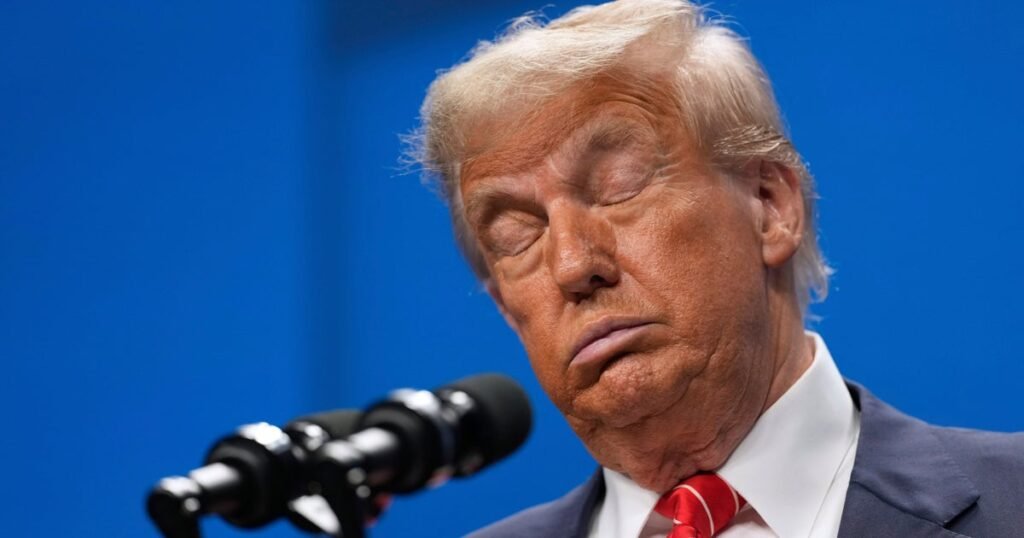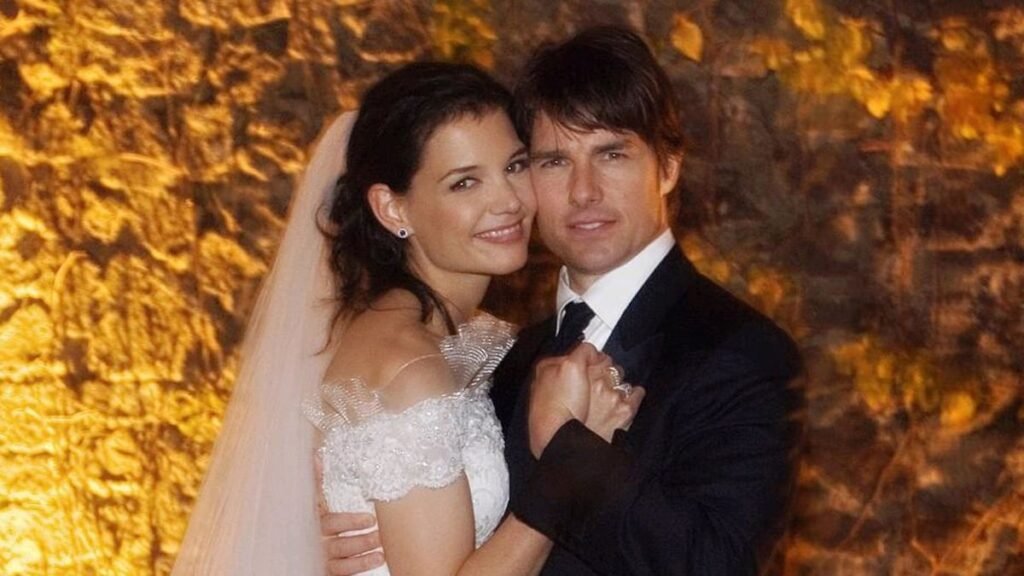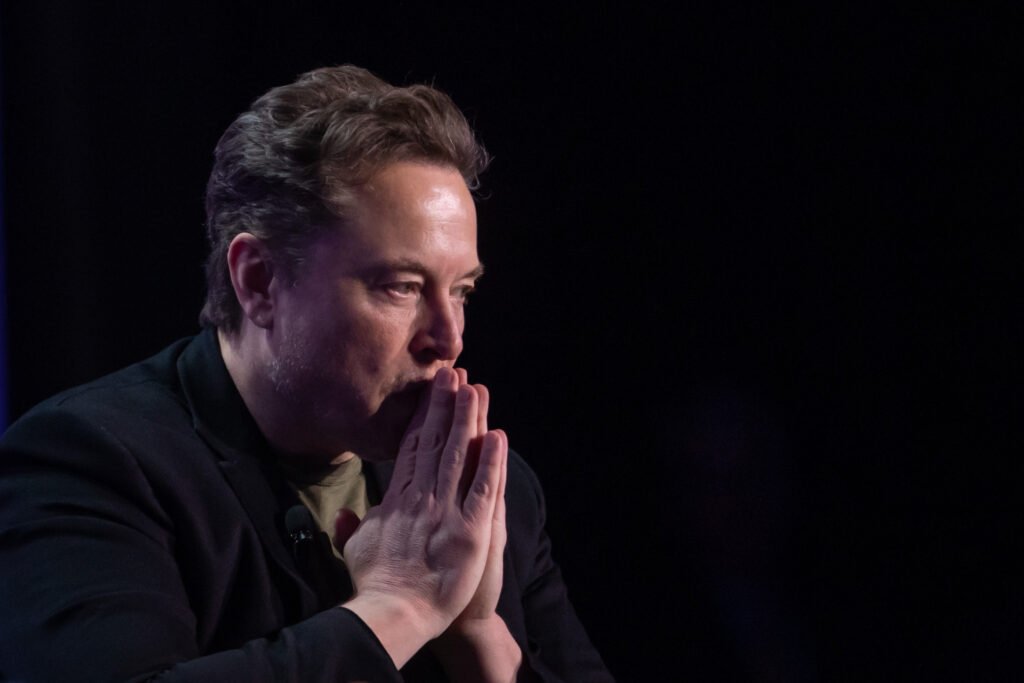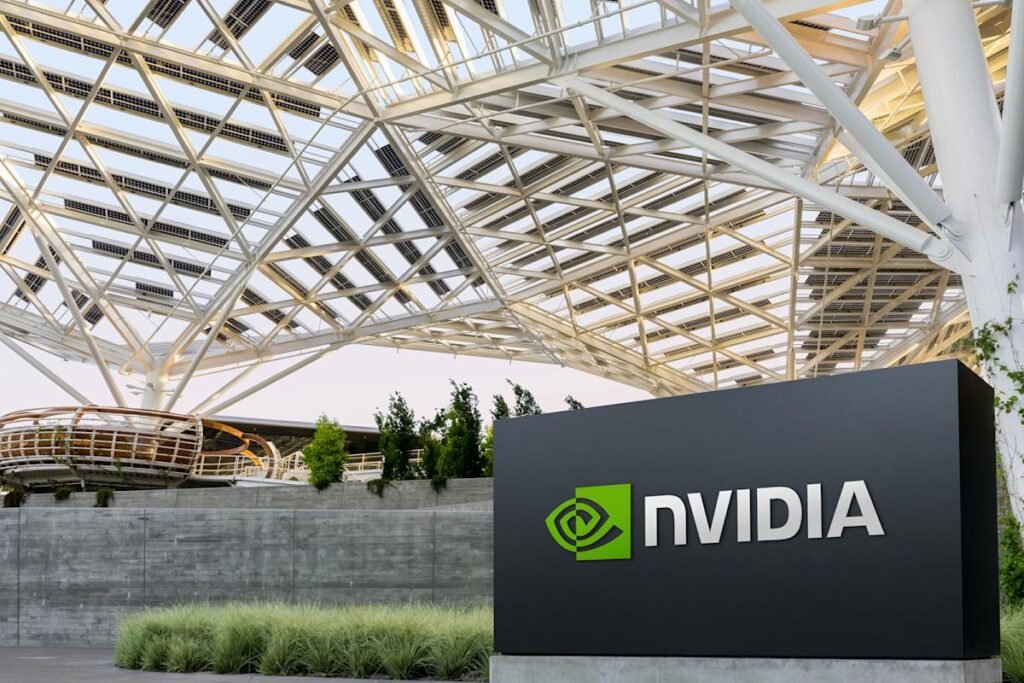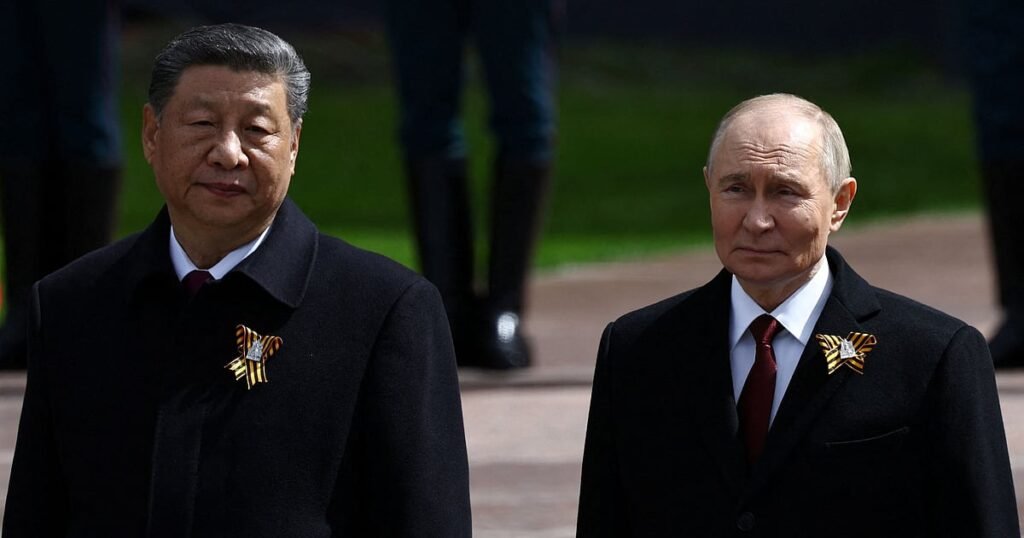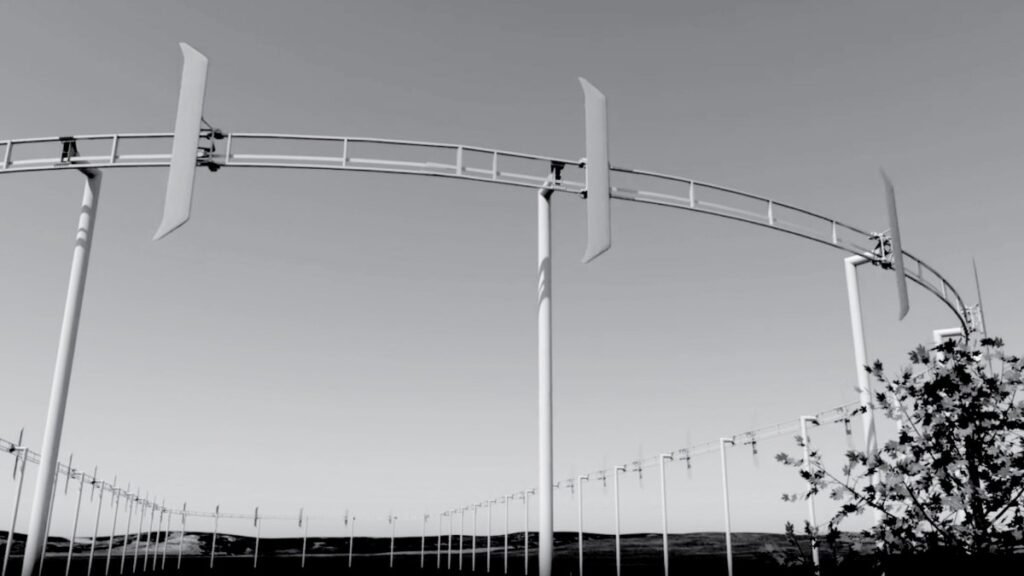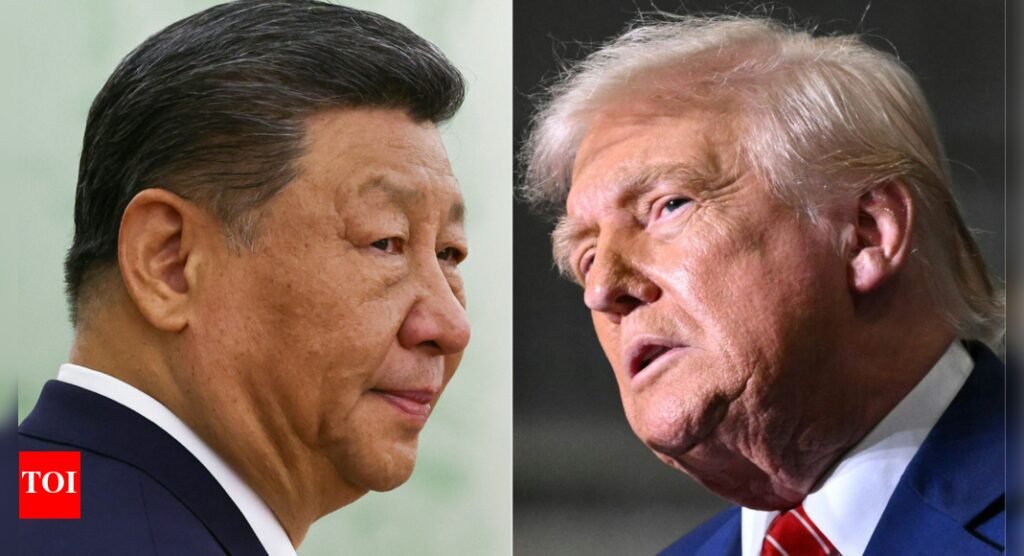The Hague, Netherlands
CNN
—
It must have been the last thing NATO’s chief needed.
Late Tuesday, on the eve of a crucial summit that would lock in a generational investment in NATO’s defense, Donald Trump’s Truth Social account pinged with a single photo: a gushing message signed “Mark Rutte,” written in a carbon-copy Trump style and overflowing with sycophantic praise for the US president.
“You are flying into another big success in the Hague this evening,” Rutte’s message read.
“Europe is going to pay in a BIG way, as they should, and it will be your win,” he continued.
“You will achieve something NO American president in decades could get done.”
While the diplomatic world has bent toward many norms of the Trump White House, this was extreme.
Doubling down on the comments the following day, saying Trump deserved credit for his actions on Iran and NATO, Rutte waded through many observers’ incredulity at his kowtowing tone. But as the summit crescendoed, there was a growing sense he may have pulled off a diplomatic masterstroke.
Rutte, the former Dutch prime minister, is no stranger to dealings with Trump, having deployed his easy charm in several visits to Washington, DC, during Trump’s first term.
Exuding an easygoing, relaxed image – his signature boyish grin never far from his face – Rutte’s charm offensive echoes that of other NATO leaders.
French President Emmanuel Macron has charted up a boisterous bromance with Trump; Finnish President Alex Stubb bonded with him over rounds of golf, and Italian far-right Prime Minister Giorgia Meloni has won a reputation as something of Trump whisperer: She’s a “fantastic woman,” in Trump’s words.
Rutte’s message – signed with his surname – perhaps spoke of a less pally relationship. So did one of Trump’s reactions Wednesday: “I think he likes me. If he doesn’t, I’ll let you know. I’ll come back and I’ll hit him hard,” Trump announced in his Wednesday news conference.
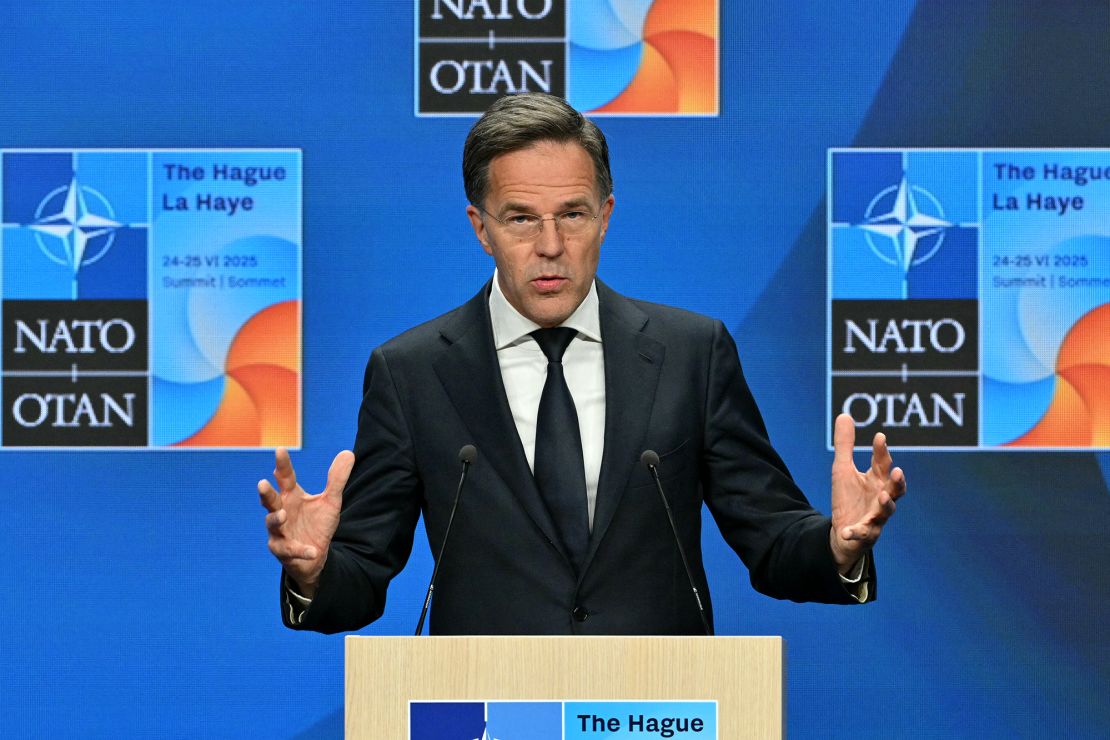
But in The Hague, Rutte seemed ready to do anything to burnish the US president’s ego and save him face.
Trump’s decision to attack Iran’s nuclear program was “extremely impressive,” the NATO chief told Trump. “The signal it sends to the rest of the world that this president, when it comes to it, yes, he is a man of peace, but if necessary, he is willing to use strength.”
Time and again around the summit, Rutte’s interjections soothed Trump’s passage – softening his landing after a fiery “f**k” at Iran and Israel’s latest exchange of missiles lit up international headlines.
Rutte’s response: a jokey aside in front of the world’s cameras.
“Daddy has to sometimes use strong language,” he said beside Trump, after the US president used the analogy of two children fighting to describe the conflict between Iran and Israel.
Rutte later said he wasn’t referring to Trump as “daddy” but was merely using a metaphor.
The Dutchman didn’t spare praise for Trump’s strikes on Iran – a conflict technically outside the NATO wheelhouse – as the president railed against suggestions in a leaked government assessment that undercut his claim the strikes “obliterated” parts of Iran’s nuclear program.
“The secretary general knows that personal relationships go a long way with this administration,” Torrey Taussig, a senior fellow at the Atlantic Council and a former NATO policy adviser at the Pentagon, told CNN.
“I do think this is a kind of hold-your-nose moment. Ensure there are no fireworks in The Hague. Get a good photo op and go home,” she added.
Beyond Rutte, the whole summit was sculpted around Trump.
Slimmed down, the schedule featured a single session for leaders; experts have suggested this was for Trump, who earlier this month skipped the ending of the G7 summit, missing a meeting with Ukrainian President Volodymyr Zelensky.
Of course, the summit result is largely pre-ordained, after rounds of pre-negotiations to ensure the leaders had to only rubber-stamp declarations.
Ukraine’s war with Russia – by far the most pressing issue on NATO’s agenda – was also excised from the summit’s final declaration, the first time it has been missing since Russian President Vladimir Putin’s full invasion of Ukraine in 2022.
Even the crown jewel of the gathering, the promise to spend 5% of gross domestic product on defense (split into core defense requirements and 1.5% on defense-related spending by 2035), was a Trump-branded product.
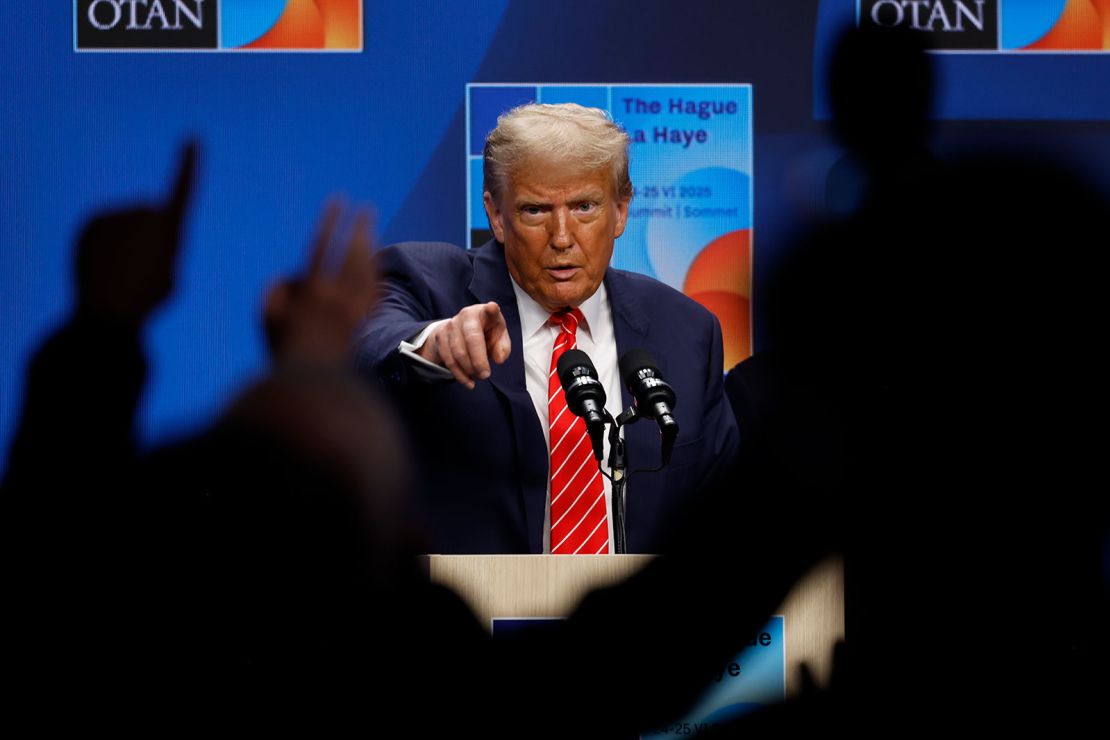
Back in January, Trump lofted the idea of a 5% spending target for NATO members, a figure that hadn’t been given serious consideration before, as members limped towards 2%.
“They can all afford it. They’re at 2% but they should be at 5%,” he told journalists.
But Rutte may have had the last laugh.
The summit was, by all accounts, a win for NATO: Members unanimously agreed to boost spendings to post-Cold War highs – and thanked Trump for it.
“In diplomacy, you try to get a goal and an aim, and what did we achieve here? We achieved an historic result, where NATO went back to its roots of collective defense,” Finland’s Stubb told CNN on the sidelines of the summit.
Spain was a notable exception, pushing for softened language that may have left a loophole for the Iberian nation to meet its responsibilities for NATO military capabilities without having to spend 5% of GDP. (The final summit declaration signed by NATO members referred only to “allies” in its clauses on spending, while others spoke of commitments “we” will make.)
Leaders – led, of course, by Rutte – singled out Trump as the sole pressure responsible for finally corralling NATO allies to previously unthinkable spending targets.
Boosted defense spending “is the success of President Donald Trump,” Polish President Andrzej Duda told journalists at the summit.
“Without the leadership of Donald Trump, it would be impossible,” he added.
His Lithuanian counterpart suggested a new motto for the alliance, “Make NATO great again,” as he welcomed the pressure Trump had levied on stingy allies.
“I’m up for all the pressure we can get,” Lithuanian Defense Minister Dovile Sakaliene told CNN. Smaller nations on the front lines with Russia were buoyed by an alliance-wide commitment to meeting spending levels they had largely led the charge on.
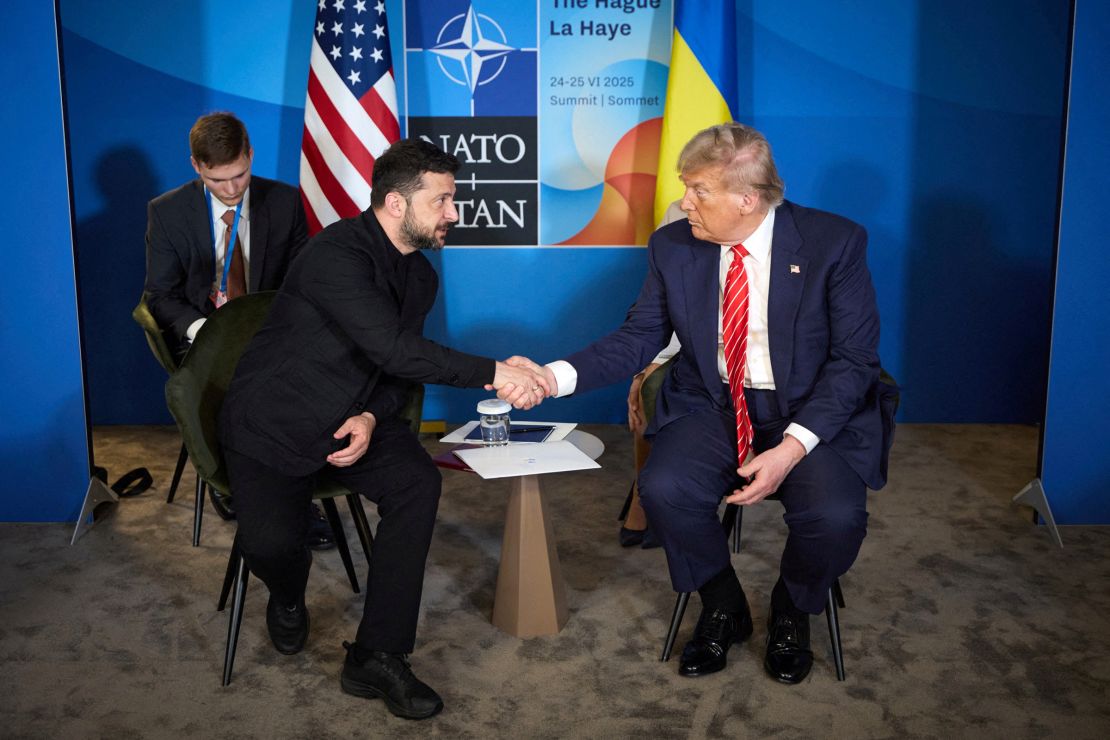
Everybody wins
One Western European official ahead of the summit shared fears with CNN the summit would be marred by another diplomatic spat around Trump.
But in public, comment on Rutte’s messaging to Trump was largely off limits, with leaders waving off or swerving around questions.
Finland’s president wouldn’t be drawn on the NATO secretary general’s messages, but he said, however, “Diplomacy has so many different forms.”
Casualties – particularly from diplomatic skirmishes with Trump – were fewer than expected. Only Spain caught flak from the US president over its foot-dragging over the 5% GDP spend.
“It’s terrible what they’ve done,” Trump said, threatening to use trade talks to force Madrid into line. “We’re going to make them pay twice as much,” he said.
Even Zelensky – who has had a turbulent relationship with Trump – came away with wins.
While he stopped short of committing further US aid to Ukraine, Trump suggested Kyiv may see future Patriot missile system deliveries from the United States – and he slammed Putin as “misguided,” conceding the Russian leader may have territorial designs that extend further than Ukraine.
Finally, Trump’s own views on NATO – often a prickly subject for the famously transactional president – saw a reversal.
“These people really love their countries,” Trump said of the NATO leaders at his news conference concluding the NATO summit. “It’s not a rip-off, and we’re here to help them protect their country.”
“I came here because it was something I’m supposed to be doing,” he added, “but I left here a little bit different.”

